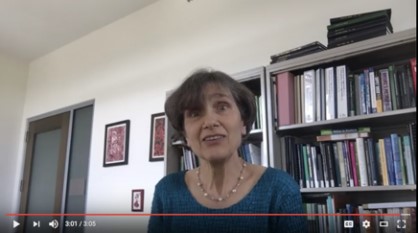
Sometimes, as we strive to embrace our future, we are quick to abandon our past. In the process of changing and growing, do we let go of those elements that formed the foundation of who we are, the things that tether us to the place we came from, or do we reflect on them and see them in a new light?
有时候,人越着急追求未来,过去的痕迹也褪得越快。在变化中成长,在成长中变化。面对那些曾定义了“我们是谁、我们从哪儿来”的答案,是放手?还是反思?或者,是做点什么呢?
Last April, I participated in a Cornell University online course called Urban Environmental Education, it was here that I first learned about a “sense of place”. This concept soon led me to ideas I have never thought about before.
去年四月,通过康奈尔大学的在线课程《城市环境教育》,我第一次听闻了“地方感”这一概念,并顿时思如泉涌,联想到了我的家乡。
My hometown and sense of place
我的家乡和地方感
The construct of a sense of place first reminded me of something interesting about my hometown, particularly about its name. I am from a place called Qinling, but I promise you will never find this place on a map of China except for the famous Qinling mountains, where my family and I definitely do not live. If you ask local people in my hometown where “Qilizhen” is, few of them could help you, because they probably have never been told they are, in fact, officially in Qilizhen. The first name, Qinling, is actually a convenient name, used by local people for more than sixty years, while the second name, Qilizhen, is the official name, yet not important to local life. I started to wonder if Qinling is derived from our sense of place. Are we calling our hometown by a name that reflects something about our forebears’ sense of place?
首先,我联想到了关于我的家乡很有趣的一点——它的名字。我会说我来自一个叫秦岭的地方,但在中国地图上你却不一定找得到它。即使是的确叫做秦岭的秦岭山,也离我家还有相当一段距离。你可以再问问当地人“七里镇在哪”,相信他们几乎也回答不上来,因为基本上没人在讲“这里就是七里镇”。事实上,“秦岭”是我们当地人已经使用了超过六十年的惯称,而“七里镇”则是当地行政区划的官名(1966年开始使用)。可为什么惯称更容易被接受和流传呢?或许是因为“秦岭”这个名字和我们或者长辈的地方感有关?
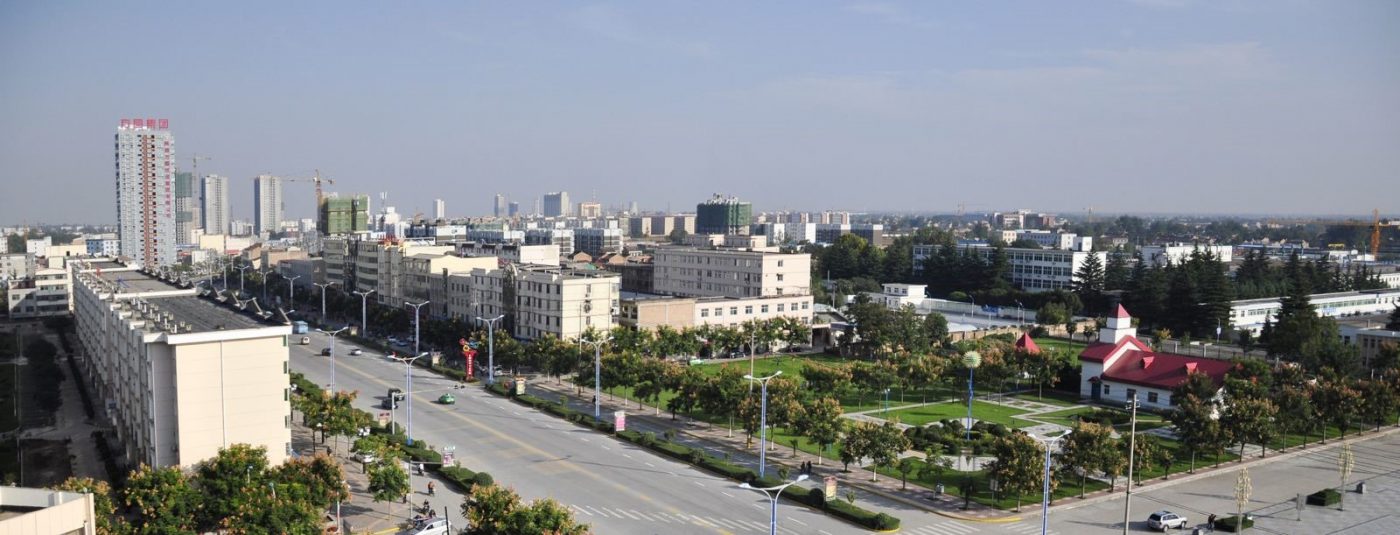
First, Qilizhen extends beyond the border of Qinling. It not only includes Huaxing, which is next to and very similar to Qinling, but also includes the several villages surrounding the two districts. Qinling and Huaxing are not big—it takes no more than twenty minutes to walk from one end to the other, but both provide everything you need, so there is often no reason to go very far. To local people, Qinling and Huaxing are two different places. And similar to those in Qinling, most people in Huaxing have never heard of Qilizhen either. How were these place names created and how did they come down through generations?
“七里镇”,实际上是包括“秦岭”、“华兴”和周边农村的区域名称。“秦岭”和“华兴”相邻、相似且都不大,大概二十分钟就能从各自的东头走到西头。由于基本上能满足生活的一切需求了,所以对当地人来说,也没什么理由外出太远。对他们来说,秦岭和华兴是两个不同的地方;作为华兴人和秦岭人,也都对“七里镇”没怎么听说过。那么这样根深蒂固的惯称是如何产生和传承下来的呢?
To find out, I asked my grandparents.
于是,我主动去问了我的姥姥姥爷。我的姥爷在上世纪五十年代就从上海来到了这里。

The names Qinling and Huaxing came from the factories they were built around. In the 1950s, two factories were built on this land and workers from cities all over China came here for the jobs. Some workers migrated with their families; some came alone and formed their families here. Factory workers constituted most of the local community at that time, so when the people started using the names of the factories, Qinling and Huaxing, to identify where they worked and lived, the new names stuck. They built up the town from wastelands and farmlands to more closely resemble the cites to which they were accustomed. For example, local buildings were built in the same style as city buildings of the day; they set up hospitals, schools, bus stations and stores, which were rare in the towns before; and they divided residential areas according to a common urban style.
“秦岭”和“华兴”实际上是当地两个国企工厂的名字。上世纪五十年代,“秦岭”和“华兴”建厂,并在全国范围招工。有的工人是和家人一起迁过来的;有的则是来了才组建家庭。由于这个地方当时基本上就是农村间的空地,所以当时定居下来的人几乎都是迁来的工人和他们的家庭。由于习惯里工作和住所不分家,所以渐渐地工厂的名字便成了地方的惯称了。于是,农村间的空地在他们的建设下一座小镇拔地而起,照着他们习惯的城市的样子:精心设计的建筑,全面的社区设施和按街坊划分的居民区……都是这里不曾有的。
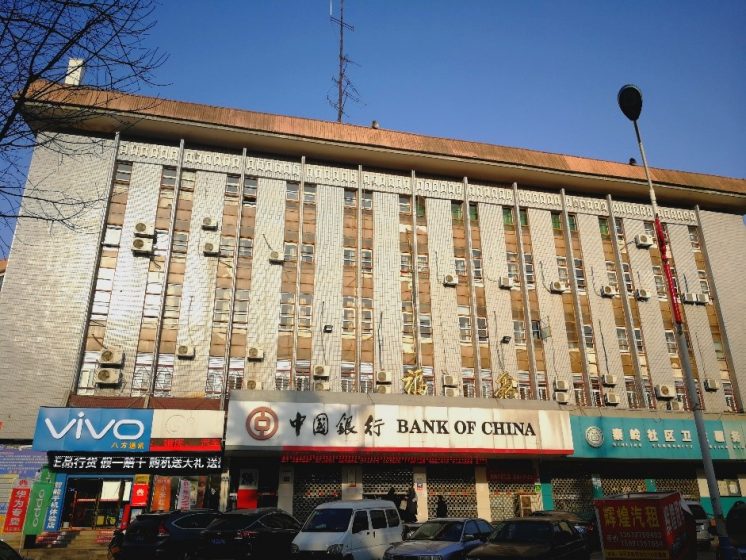
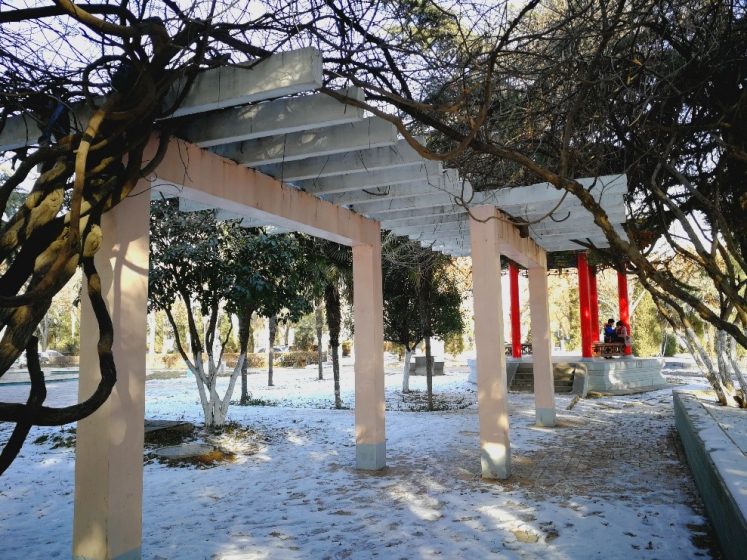
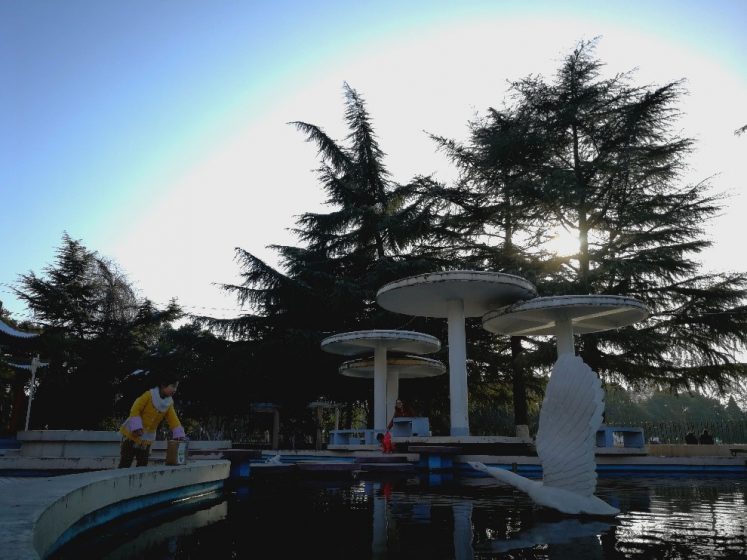
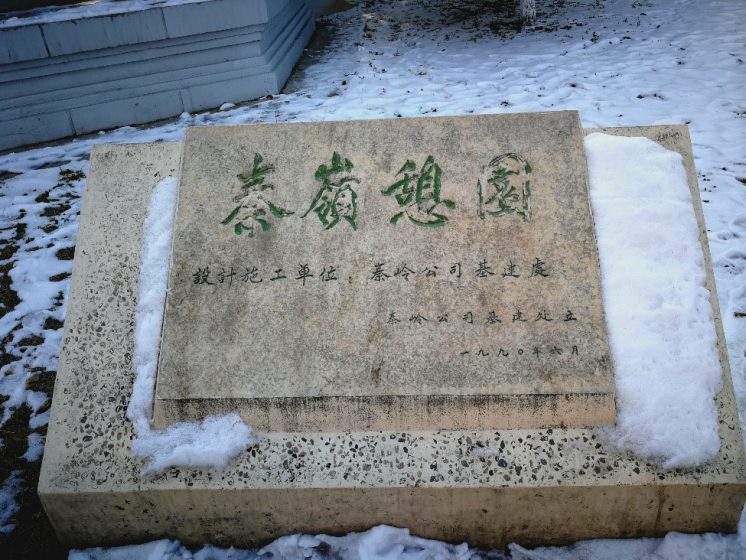
The new towns were built less for the workers themselves and more for their children. My mother’s generation grew up in local schools and most of her peers stayed in Qinling and Huaxing to work in the factories where their parents’ generation also worked. Her generation joined in building the town as well, so they were also builders. The two generations of builders often couldn’t speak the local Shaanxi dialect, but they could speak Mandarin or the dialects from where they grew up. For example, my grandfather speaks Mandarin and Shanghai dialect, but my mother can only speak Mandarin. Even today, those old and middle-aged migrants appear to have more common words with distant city people but share fewer common words with countryside people who are geographically closer to where they now live. Over the past 60 years, the urban community of migrants and their families have become very close but have not bonded with nearby farmers.
虽然是为了工作而来,但无论如何定居下来总要为了下一代着想,于是当一个完整的生活社区逐渐建成,也形成了我妈妈那代人常见的“就地教育—进厂工作”的闭环。我妈妈那代人也是社区的建设者,并见证了九十年代的发展高潮。不过,你会发现两代的社区建设者们通常都不太会说陕西话,更多讲普通话和他们原籍的方言。比如,我的姥爷讲普通话和上海话,而我妈妈只会讲普通话。甚至在今天,当地上了年纪的人也似乎与城里人更有共同语言,而不是生活在他们周边的农村人。毕竟,“秦岭”和“华兴”很好地将自己与农村区别开来。在过去的六十年中,“秦岭人”和“华兴人”生活关系紧密、社区联络很强,这里就仿佛是城市一隅。
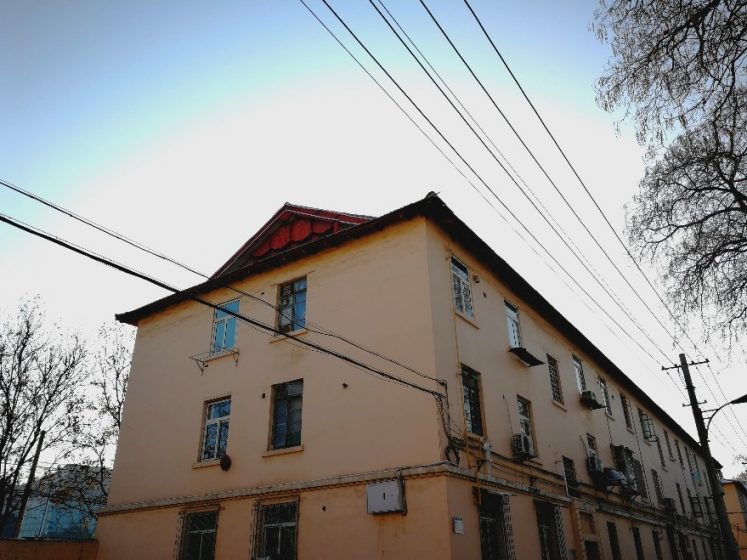
Although many families have moved to nearby bigger cities in recent years, such as Xianyang and Xi’an, Qinling and Huaxing remain a significant part of their life-long identity. My grandparents, parents, and their friends often talk about how fast changes are taking place, satisfied with their life today, but also speaking of the past fondly. There was no reason for them to leave, for Qinling/Huaxing provides everything they need to live, and also becomes something they own, something that can’t exist without them. This is especially true for my grandparents’ generation, who came here in 1950s. Qinling/Huaxing witnessed almost every moment of peace and chaos in their past collectivistic life, when each of them was highly bonded with the fate of the country, when their work was such a contribution to the country—a cause of honor. During specific periods in China, my grandparents and parents’ generations survived a series of ups and downs, as a result they developed strong place meanings and attachments as part of their values, and thus formed a deep-rooted sense of place.
虽然近年来,许多家庭还是搬去了临近的大城市,比如咸阳和西安,但是“秦岭人”和“华兴人”始终还都是他们难以忘却的重要身份。留在这里目睹了发展和变化的两代建设者们,也能在对如今生活的满足中欣慰地回忆起过去。“秦岭”和“华兴”,不仅给了他们生活的一切,也是他们所拥有的;而他们也是“秦岭”和“华兴”存在的意义所在。尤其是对我姥姥姥爷的那一代人,他们自五十年代陆陆续续来到这里,可以说,“秦岭”和“华兴”见证了他们过去集体生活的涨落起伏。“那个时候人心很齐”,每个人都能自觉地将自己与国家的命运紧密结合,不仅视自己的工作为对国家的贡献,也骄傲于这样一项荣誉的事业。于是,强烈的地方意义和依附感成了他们价值观的一部分;也正是如此的价值观,也才成就一批人深刻的地方感。
Sense of place crisis
地方感危机
However, since the 1980s, as my generation came of age (I was born in 1996), things began to change. For example, this period saw both the implementation of China’s one-child policy and the nation-wide administering of the National Higher Education Entrance Examination. As a result, our experiences are different than those of earlier generations. For example, we have no experience building a town, or even planting a tree as my uncle did, as a family’s only child should be protected. Nor are we expected to stay here, so we long for bigger cities, new identities, achievements, and seek new values. It hard for us to understand why our parents and grandparents stayed in these small places. Qinling and Huaxing became nothing more than two distant names for us.
自八十年代起,是我们这一代人的到来(我出生于1996年),颠覆性的变化也开始出现。这一时期,独生子女政策实施,高考制度正式恢复。我们这一代人独自探索在同长辈们截然不同的人生道路上。我们没有建设过社区,甚至没有像我的舅舅一样种过一棵树。因为独生子女是一家子的唯一希望,是要受保护的。同时,我们也不再被期望留下来,反而被鼓励去大城市,去获得新身份新成就,去寻找新的价值。当我们开始难以理解为什么长辈们宁愿一直呆在小地方时,“秦岭”和“华兴”,对我们来说也不外乎就是两个地方的两个名字而已了。
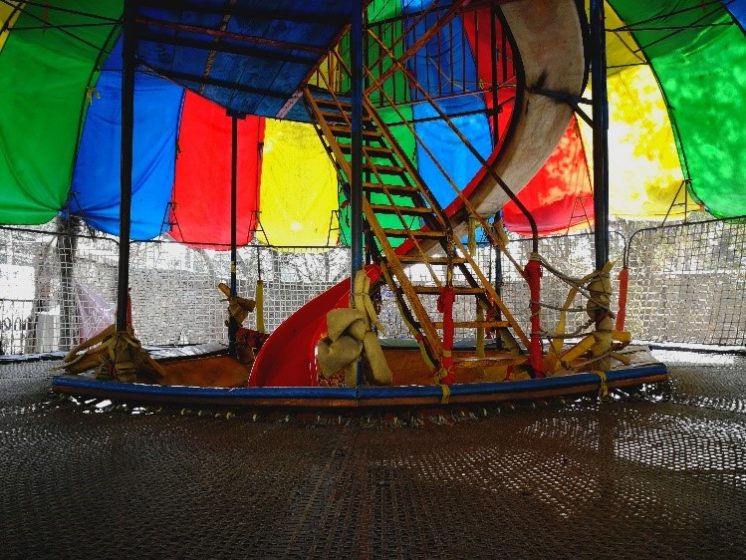
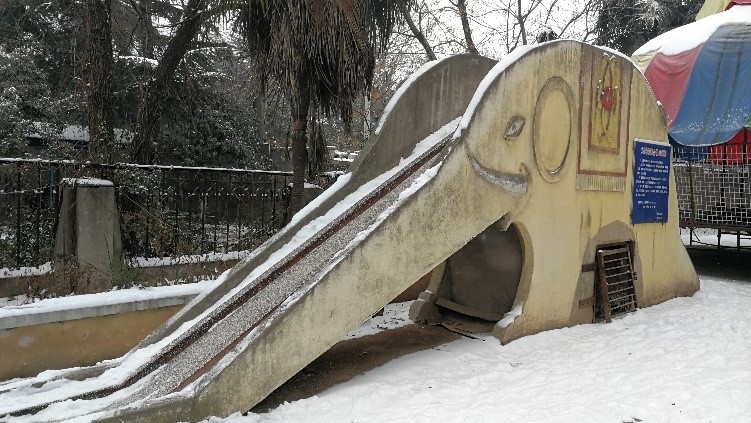
Education is largely responsible for the shift. On the one hand, the information we receive through school education, from kindergarten, primary, to middle school, is often about how much better it is in the new, bigger outside world; on the other, the education itself also gets tougher as we grow up. We are thus strongly motivated by the contrast to “finish and harvest”, which is the success in college entrance examination.
与此同时,教育也起着关键的影响。一方面,我们通过幼儿园、小学和中学教育获得的信息不外乎都是关于“外面更大的新世界有多好”;另一方面,越长越大,教育本身也越来越艰苦。于是在这样的反差下,我们拼命地想“结束并丰收”,就是在高考中获得成功——离开艰苦的教育,前往美好的新世界。
Besides, as we value the individual benefits of modern education so much, we can’t help but blame our small-town origins for placing us on the downside of an unbalanced distribution of education resources too. Therefore, the contrast again undermines the positive aspects of the place and even disturbs its interpretation. The relatively unsatisfactory local conditions, once compared with cities, would be ever more obvious signs of backwardness and poverty to us. And an increasing number of migrants from rural areas are also perceived to be lowering our community quality. When such uncomfortable thoughts finally arrive at an intention of abandoning Qinling/Huaxing, making it even more real, our original care and love for the place seems worthless, and even the strong part of sense of place turns to a sense of shame. “This place is good for nothing. When will I be rid of this small poor place?”
除此之外,坚定的“知识改变命运”信仰也让我们没办法不去埋怨我们小地方的教育资源弱势,甚至把“小地方”视为绊脚石。尤其和城市一对比,“小地方”看起来就更不怎么样了。同时,随着更多农村人口的迁入,社区质量也被认为降低了。消极的感受日积月累,直到立志要抛弃“秦岭”和“华兴”,“小地方”消极的一面也更加真实了。以往对家的关心和留恋变得没用,甚至地方感越强,羞愧感也越强,因为这都成了“没出息”的表现。“这个小地方没出路的!我什么时候能摆脱这里呢?”
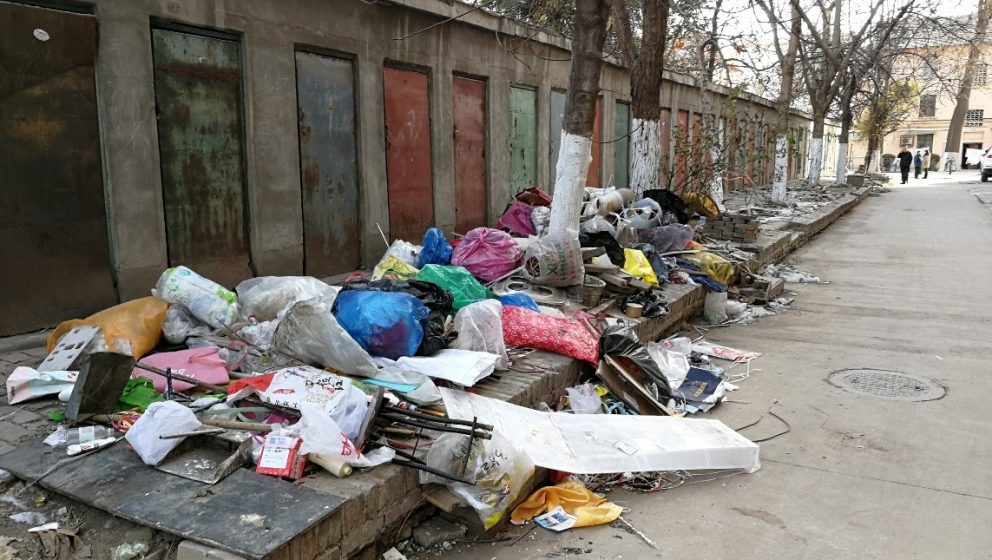
I can’t say our sense of place is broken, or gone, or wrong, or whatever, but indeed the sense of place crisis is felt here. No one is making a voice for the place, so there is no one listening.
是我们的地方感是破碎了?消失了?失常了?还是怎么了呢?不过在这里,你能确实感受到一股“地方感危机”。没有人在为这里发声,也因此没有人在听。
What if there were a reminder for local people, or a place to record memories and history, a platform to rediscover something about the place they live? Would it be an opportunity to increase people’s positive sense of the place? Thanks to my experience with Cornell University’s online Urban Environmental Education course, I learned of some promising approaches to address the crisis, such as digital story-telling and place-based education.
如果能给当地人一个提醒,或者能记录起这里的记忆和历史……如果能有这样一个平台能帮助他们重新发现这里,那会怎么样呢?或许会是一个机会能让大家正视“小地方”的积极面?或许能拯救“地方感”?还是通过康奈尔大学的《城市环境教育》在线课程,我学到了一些有望缓解危机的方法,比如数字传媒和在地教育。
Action for our sense of place!
为我们的地方感行动!
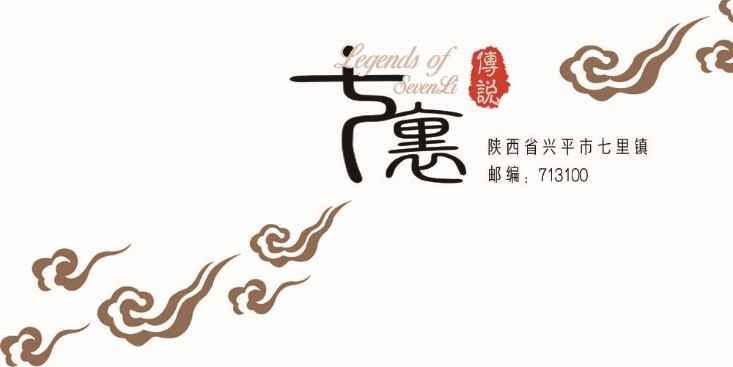
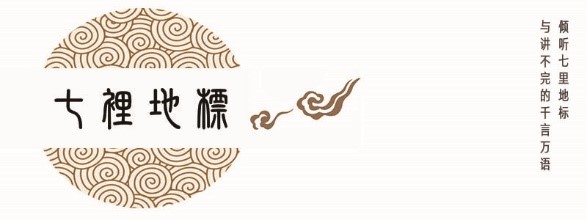
I still remember that last summer when I brought home the questions about my sense of place, how the familiar landscape suddenly appeared so different before my eyes. I even felt myself energized to learn more about my place for the first time. I started to care about questions like what it was like before and why it had changed. I became curious about how the town was built half a century ago and felt proud of it for the first time. I also felt happy when I discovered that I felt angry to find that the land had not been well cared for, because I believed this was how my sense of place should work. Besides, the idea of having a sense of place has given me an adult perspective on my hometown: “What can I do for it, even if I will not live here for long, but I am still part of it, forever?”
依旧记得上个夏天,我首次带着对地方感的思考回到家乡,竟发现以往熟悉的景象忽然变得如此与众不同,那是一种被激发的感觉,是我第一次想要去好好了解一下这个地方。我开始好奇这里那里变化以前的模样,以及为什么变化。我渴望了解这半个世纪的社区建设史,也是第一次为这里感到骄傲。我也欣喜地发现,自己因为这里那里没有被照料好而感到空前的愤怒。这才是好好表达自己地方感的样子啊!除此之外,地方感也启发了我更成熟地看待自己与家乡的关系—“我能为它做什么呢?即使我将不会在这里住很久了,但我仍然是它的一部分,永远啊?”

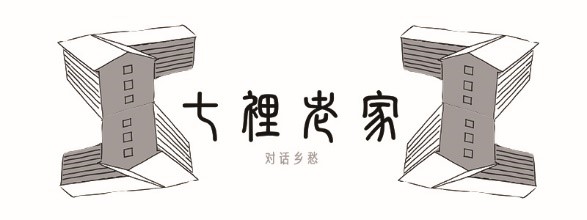
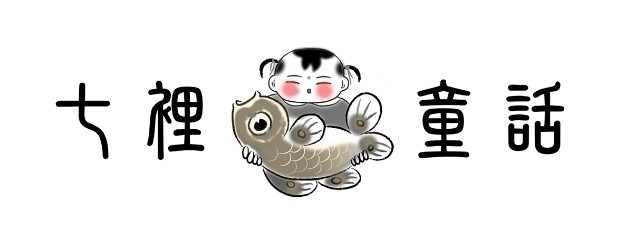
This winter holiday, I initiated with some friends I grew up with, a local program called Legends of Sevenli (i.e., Qili). We created a WeChat public account (a popular blogging and social media platform in China) to record the beautiful parts of our sense of place, and to inspire such a sense in other local people. During the whole month of the winter holiday, we posted about 20 place-based articles to four special columns—Old Home, Landmarks, Childhood, and Cuisines. Old Home collects pieces of story cards from local people related to their old life in a certain area. Landmarks provides local tales about important local spots, such as statues. Childhood gathers memories of our early life in the town, happy or unhappy, excited or upset. Cuisines “re-cooks” those tasty foods, bringing readers back to good times in the town. Happily, some of the articles were very popular among local people, receiving a thousand hits, and were even subscribed to by local newspapers.
于是,这个寒假我和我的朋友们在家乡发起了一个名为‘七里传说’的项目,通过微信公众平台记录地方感之美,期以引起更多当地人共鸣。在寒假的一整个月中,我们创作了约二十篇和地方相关的文章,并分了四个栏目,即七里老家、七里地标、七里童话和七里佳肴。七里老家希望能收集当地人过去在老街坊生活的故事片段;七里地标讲述当地重要地点的故事,比如雕塑和老建筑;七里童话记录在七里镇童年的喜怒哀乐;七里佳肴从地方美食的角度回忆地方故事。令人欣喜的是,一些文章很受欢迎,获得了上千的阅读量;有的甚至还刊登在了地方报纸上。
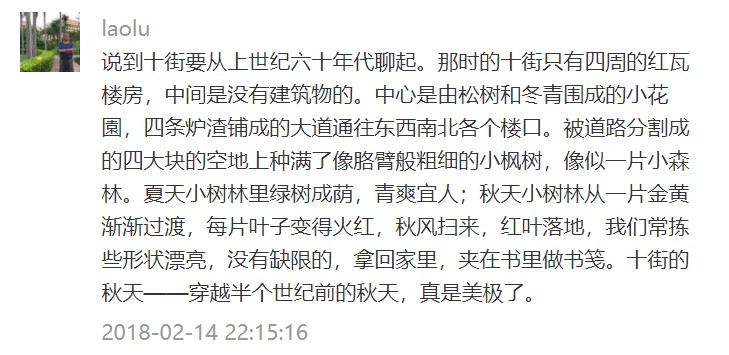
My friends and I also successfully organized a three-day story map activity with local children and teenagers. Even though only a few joined in, we were happy because we were doing something for local people. Two teams collaborated to draw one map of an old residential area and collected stories for the map using self-reflection and interviews. As university students, we also taught the children what we have learned, such as how to draw a professional map, and how to interview family members and strangers.
我和我的朋友们也成功组织了一次为期三天的故事地图活动,面向七里镇的少年儿童。即使坚持参与到最后的孩子不多,但我们还是为我们的行动骄傲,至今还在回味那段令人激动的经历。第三天,两支队伍合作完成了十街老街坊地图的绘制,并通过反省和采访的方式收集了十几个小故事。而在之前,我们几个大学生也将我们在大学学到的教给了参与的小伙伴们,比如如何绘制专业的地图,如何采访家人和陌生人等。
At last, it became obvious that the organizers, once so determined to abandon the place, had rediscovered its beauty and began reconstructing a new sense of place, and are now ready to take more efforts to improve their hometown too.
我们这些组织者们也格外感受到了家乡的另外一面,好像重新发现了它的美和精贵,有了一种新的地方感,也期待着为家乡做出更多努力。
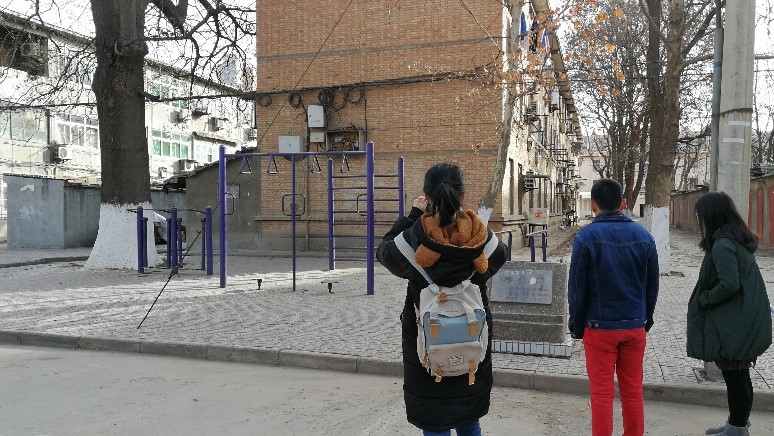
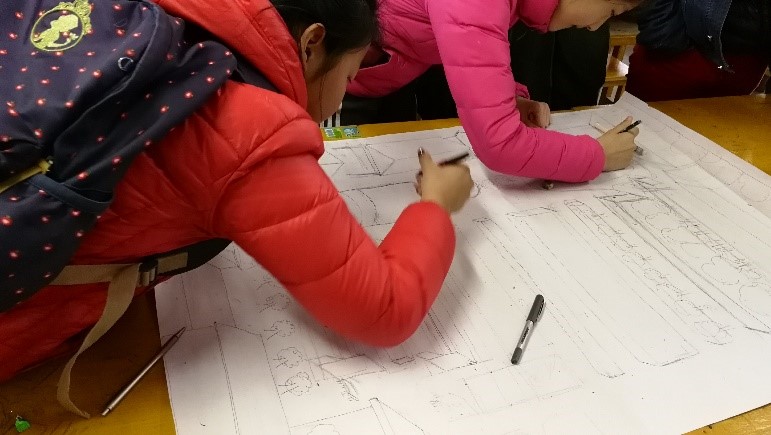
Program sustainability?
项目的可持续性?
However, the winter holiday was short, so the aforementioned is all we have done so far. Since returning to our schools for the new semester, it has been not easy for our group to meet again for new activities and articles. The public account of Legends of Sevenli has already been quiet for three months. We invited a middle school teacher to join us as local facilitator, to help collect articles from other teachers and students to keep the public account alive. Unfortunately he was unable to participate because of an unpredictable work load in the new semester. So, it comes to the question of program sustainability. How do we make the program sustainable? Or, is program sustainability even necessary?
然而寒假苦短,也只能就此作罢。开学返校后,我们组织者的几个人见个面或者再商量个事儿都很困难,七里传说的公众号也不得不寂静了三个月多。我们曾邀请了一名当地的中学老师作为“七里传说”的地方联络人,协助从师生收集文章,以充实公众号内容。不过因为新学期中高考的工作压力,他也不得不婉拒了我们。所以问题来了,我们该如何让这个项目可持续呢?或者这个项目本身的可持续性是否必要呢?
We have had serious discussions about our individual time commitments, needs and career demands with regard to finding ways to sustain the program. Unfortunately, there is very little agreement among us, because none of us are in a position to take on the level of entrepreneurship a sustainable program requires. We don’t want to give up on the important idea that originally generated this project; reinforcing our sense of place. It is a worthy goal to continue to strive for; but continuing the program requires a creative spark that needs to be renewed.
我们曾严肃讨论了这个问题,包括我们的个人时间、需求、发展与项目的关系,以寻求持续下去的可能性,不过始终没达成持续下去的最终决定,因为我们之间没有一个人有想过或者准备好为了持续项目而创业。虽然我们并不愿意放弃衍生出这个项目的初衷—“拯救地方感”,但持续下去这个项目或许还需要更多火花。
However, we are all very sure that our program has had an impact, and that it will serve as a reminder to us and others about appreciating where we come from, and the importance of a sense place. We hope that someday organizations or institutions will create opportunities to support teams of students or concerned citizens like us to take meaningful actions back home to help nurture an appreciation for local history and foster a sense of place. After all, home is always the best place to “act locally, think globally”; it is the origin of our sense of place.
我们将项目产出作为网络图文都保存了下来,提醒着更多人去正视自己的地方感,感激自己的家乡。我们也希望能有组织机构能支持我们以及做着类似事情的其他队伍,即使是一年一次的短期项目也好,为了家乡的历史和我们的地方感,每一次行动都会有意义深远的影响。毕竟,家乡永远是“全球视野,地方行动”的最佳起点;家乡也是我们地方感的根源。
Today though, if there is any chance to tell others our story, we will take it; any chance we can continue the program, we will take it; any chance we meet others with similar ideas in mind, we will help them! Beyond continuing our program, sharing the message of the importance of creating a sense of place is the ultimate sustainability of the cause for the benefit of many others. Isn’t that exciting?
如今我们也约定,一旦有机会向其他人讲述我们的故事,我们就上;一旦有机会能持续我们的项目,我们就上;一旦有类似打算的人需要打气助力,我们就上!不再局限于仅仅持续我们的项目,因为能力所能及地传达地方感的重要性才是有利于更多人的终极“可持续性”;而我们正处于其中,不亦乐乎?
Yueyang Yu / 于悦洋,
Beijing / 北京
With editorial support by Marianne Krasny
Ithaca / 伊萨卡
about the writer
Marianne Krasny
Marianne Krasny is professor in the Department of Natural Resources and Director of the Civic Ecology Lab at Cornell University, and leader of EPA’s national environmental education training program (“EECapacity”).

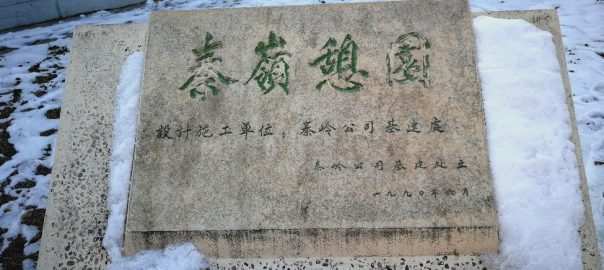

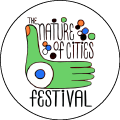
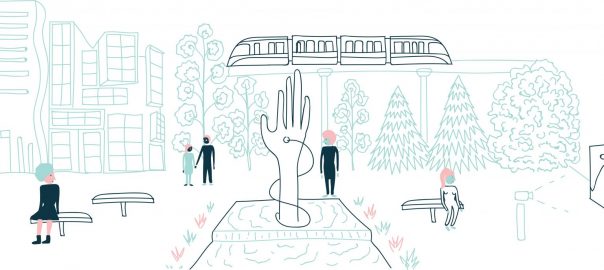
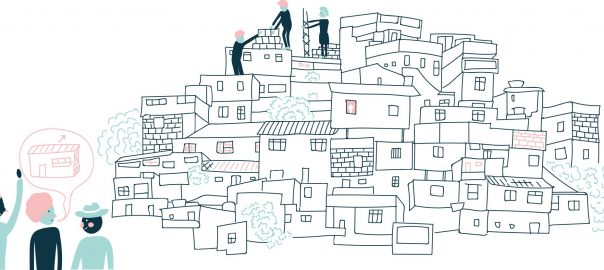
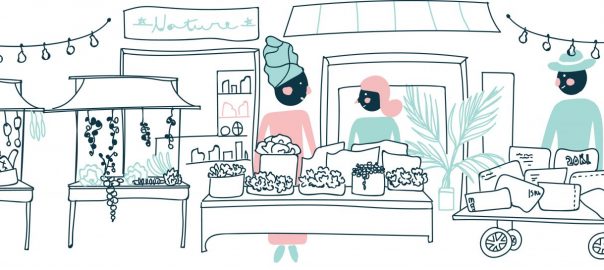
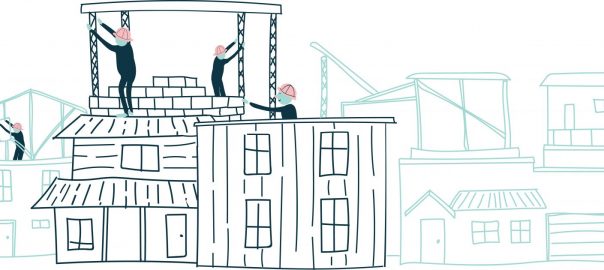
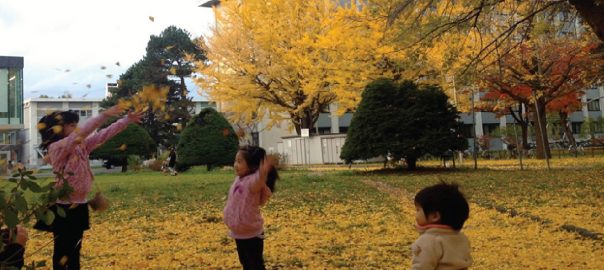
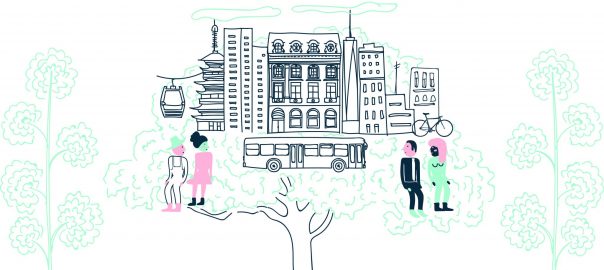
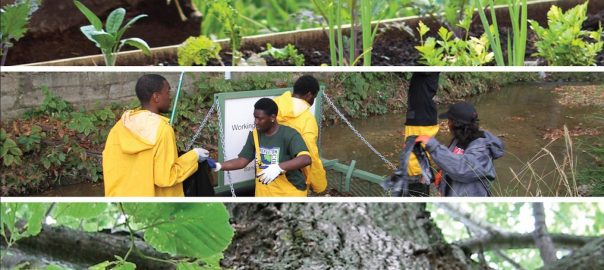
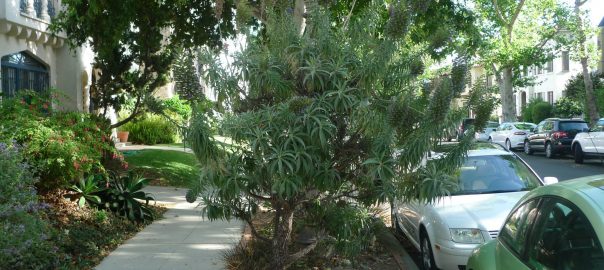
It’s a beautiful story – and I wish you luck and success in reclaiming your sense of place there.